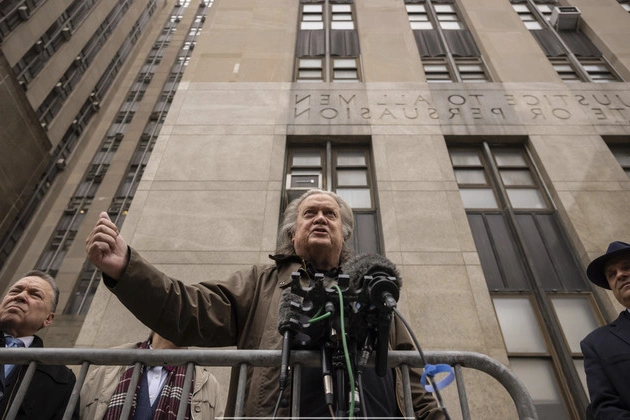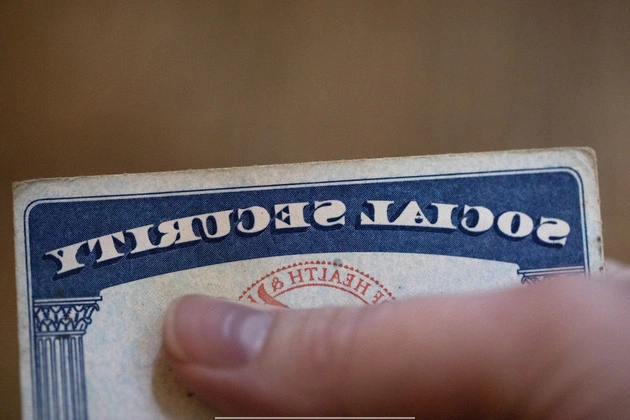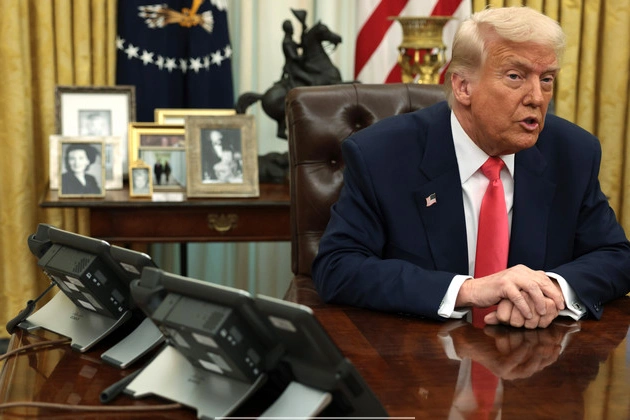
Steve Bannon, a close ally of President Donald Trump, has pleaded guilty to a fraud charge linked to deceiving donors who contributed to a private project aimed at constructing a border wall along the U.S. southern border. Despite calling it a ‘political persecution,’ Bannon accepted a plea agreement that avoids jail time in the ‘We Build the Wall’ scheme. He received a three-year conditional discharge, contingent on good behavior.
Background of the Case
Following his guilty plea, Bannon expressed his feelings of being on top of the world. Subsequently, he urged U.S. Attorney General Pam Bondi to launch a criminal investigation against New York Attorney General Leticia James and Manhattan District Attorney Alvin Bragg. Bannon’s defense attorney, Arthur Aidala, dismissed the charges as baseless, emphasizing that the case was never about Bannon personally.
Legal Restrictions Imposed
Under the terms of the plea agreement, Bannon is prohibited from engaging in fundraising activities or holding any fiduciary role in charitable organizations with assets in New York. Moreover, he is forbidden from using, selling, or accessing any data obtained from donors to the border wall initiative.
Reactions and Consequences
Manhattan District Attorney Alvin Bragg hailed the resolution as a victory for safeguarding New York’s charities and the public’s charitable contributions from fraudulent schemes. Bannon’s plea deal follows a directive from Pam Bondi to investigate what President Trump labeled as the ‘weaponization of prosecutorial power.’
The case, initially set for trial on March 4, was brought by Bragg’s office after federal charges against Bannon were nullified by a Trump pardon in 2021. The trial was further complicated when Judge April Newbauer permitted the prosecution to present evidence indicating Bannon’s awareness of potential fraudulent activities within the fundraising campaign.
Defense Strategies and Legal Battles
Prior to his plea, Bannon had been gearing up for an aggressive defense with a new legal team. They aimed to portray the prosecution as biased and vindictive. Bannon’s legal team had filed motions challenging the constitutionality of the charges, which were pending a ruling before the plea deal rendered them moot.
Accusations and Allegations
In the indictment, Bannon faced charges of money laundering, fraud, and conspiracy. Prosecutors accused him of misleading donors by promising that their contributions would be used exclusively for the border wall project, while allegedly diverting the funds for personal gain. The ‘We Build the Wall’ campaign, initiated in 2018 post-Bannon’s dismissal from the Trump administration, raised over $20 million and led to the construction of a segment of fencing along the border.
Political Context and Aftermath
The legal saga surrounding Bannon and his associates unfolded against a backdrop of political tensions. Following Trump’s pardon, the case shifted to state court, where Bragg pursued charges after federal pardons excluded state offenses. Bannon’s skepticism about the fundraising campaign’s viability, as revealed in emails, formed a key part of the prosecution’s narrative.
While Bannon’s collaborators faced federal convictions and prison sentences, Bannon’s legal troubles extended to his involvement in the Capitol attack investigation, resulting in a brief prison term. Bondi’s formation of a dedicated task force to scrutinize potentially politically motivated prosecutions underscores the broader implications of cases like Bannon’s.
For updates on this evolving legal saga and its implications, stay tuned for further developments.















